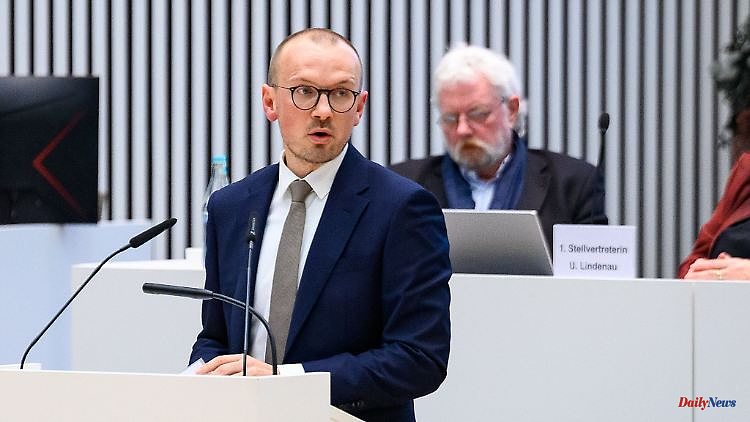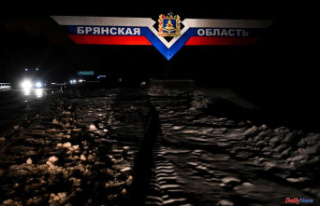In several places in Mecklenburg-Western Pomerania, new accommodations for several hundred refugees are causing displeasure. There are protests in Greifswald, but things remain calm in Parchim.
Greifswald/Parchim (dpa/mv) - The debate about the accommodation of refugees in Mecklenburg-Western Pomerania continues. Protests broke out again in Greifswald on Thursday. In Parchim, the district council discussed renting 90 apartments for several hundred asylum seekers in the 860-inhabitant municipality of Demen. Local residents said during question time that there were unanswered questions in the area. They asked District Administrator Stefan Sternberg (SPD) to come to Demen and talk to the citizens.
According to police estimates, around 500 people gathered in Greifswald before a meeting of the main committee on Thursday evening next to the town hall and expressed their displeasure with the Hanseatic city's accommodation plans. On posters they also criticized the federal government and its migration policy. According to the police, around 230 people came to a counter-demonstration.
The police positioned themselves between the groups and in front of the entrance to the town hall. The media and Mayor Stefan Fassbinder (Greens) were also criticized from the ranks of the larger assembly and from speakers, some of them clearly.
In the evening, the main committee wanted to discuss planned accommodation for refugees in Greifswald. The original plan was to set up container accommodation with 500 spaces in the Ostseeviertel in the east of the city. This met with strong resistance. The district of Vorpommern-Greifswald and the city then announced that several smaller locations would be examined as an alternative. Fassbinder and District Administrator Michael Sack (CDU) wanted to make a statement that evening. It was expected that only the citizenship would make a final decision in a special session.
Around a meeting of the Ostseeviertel district council, around 500 people protested against the planned container accommodation on Monday. There had been hostilities against Lord Mayor Fassbinder, who left the meeting under police protection.
Before the district council meeting on Thursday, around 50 people demonstrated in Parchim for the reception and humane accommodation of refugees. There were no actions by opponents.
District Administrator Sternberg defended the planned accommodation in Demen in the district council. No container village or tent city will be built, but 90 existing apartments will be rented, he emphasized. Rental starts on April 1st. The apartments are currently being renovated.
At the same time, Sternberg appealed to the federal government to provide more support for social infrastructure such as medical care, daycare centers and schools, because Mecklenburg-Western Pomerania is characterized by small communities. "We'll be able to tolerate another sustained influx of this kind for a while, but we're also at our breaking point," he said.
In a letter, all six districts asked Prime Minister Manuela Schwesig (SPD) and Interior Minister Christian level (SPD) to address the issue at the next federal-state summit. "There must be solutions from the federal government," Sternberg clarified.
New, large accommodations for asylum seekers are currently being prepared in several places in MV, which is causing dissatisfaction locally, for example in Upahl (Northwest Mecklenburg) and Greifswald. The municipalities have hardly any free capacities due to the large number of refugees from Ukraine.
In the residents' question time, a citizen from Demen criticized the decision to accommodate several hundred people in the place. There is nothing there for the people, he said. According to Sternberg, families should be accommodated in the apartments. Although 455 places are planned, an accommodation is already considered to be occupied with an occupancy of 75 percent. The 90 apartments are located in two blocks of flats that were built for the National People's Army in GDR times. A barracks area once stretched behind it.
The district administrator also said that social care and a security service were planned for the accommodation for asylum seekers in Demen. Language courses should be organized in cooperation with the adult education center. In addition, childcare is offered in the buildings, since the day care center in the village is busy. Foreigners and social authorities would set up office hours on site. Medical care is provided in cooperation with the Crivitz hospital, as the doctor on site is busy.












